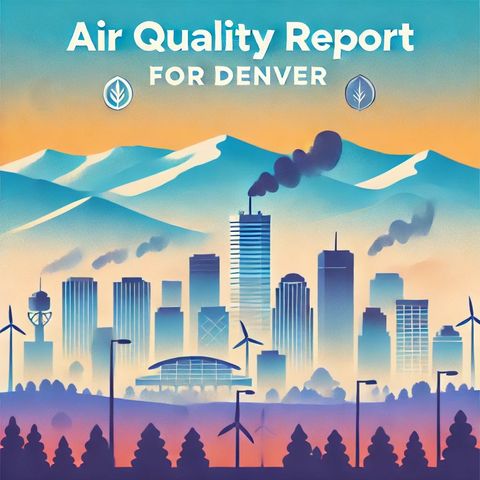10 NOV 2024 · As of today, Denver's air quality is a topic of significant concern for residents and environmental agencies alike. The Mile High City, known for its stunning vistas and active outdoor lifestyle, often faces air quality challenges due to a combination of geographic and human factors.
Denver's air quality today is primarily influenced by local weather patterns, traffic emissions, and regional wildfires. The city sits in a natural bowl, which can cause pollutants to become trapped, especially when weather conditions are still, creating an inversion layer. Additionally, Denver's traffic, as well as industrial activities, contribute to various pollutants, including ozone and particulate matter.
According to the latest data from the Environmental Protection Agency's Air Quality Index, or AQI, which measures how clean or polluted the air is, Denver is experiencing moderate air quality. This means that while the general public won't be significantly affected, sensitive groups such as children, the elderly, and those with respiratory conditions should consider limiting prolonged outdoor exertion.
One of the primary pollutants contributing to today's air quality is ground-level ozone. Unlike the protective ozone layer high above, ground-level ozone can cause or exacerbate respiratory problems. It forms when pollutants from vehicles, power plants, and other sources react in the presence of sunlight. Given Denver's sunny climate, ozone levels can easily rise during the warmer months.
Particulate matter, especially PM2.5, another concern today, contributes to the haze and potential health issues. These tiny particles, 2.5 micrometers or smaller, can penetrate deep into the lungs and even enter the bloodstream, causing various health problems over time. Sources include vehicle exhaust, wildfires, and industrial emissions.
Today's moderate AQI highlights the ongoing need for awareness and action. Local authorities and environmental groups continue to monitor these conditions, urging residents to reduce emissions by utilizing public transportation, carpooling, and adhering to clean air initiatives. Simple actions, such as avoiding idling vehicles, can also contribute significantly to improving air quality.
Denver's residents are encouraged to stay informed through resources like the Colorado Department of Public Health and Environment's updates and the EPA's AQI website, which provide timely information and health recommendations based on current air quality conditions.
Efforts to improve air quality in Denver are ongoing and involve cooperation between individuals, communities, and government entities. By staying informed and taking proactive steps, the city can continue to enjoy its beautiful outdoor environments while protecting the health of its residents.


